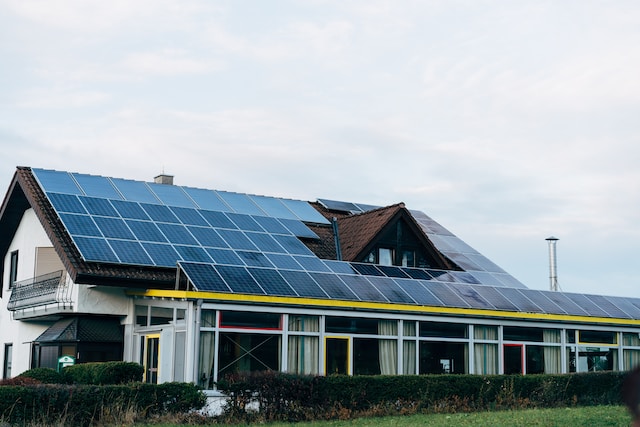Solar panels are also good for the environment and can save you money. However, how much you can save depends on a few factors.
Local electricity rates, energy consumption trends, and the size of your solar system determine savings. Incentives, such as net metering or selling SRECs, can boost your savings.
Cost
Solar panels are an excellent way to reduce your energy bill and help protect the environment. However, they can also be expensive to install.
The price you pay for a solar system depends on several factors, including the size of the system and the type of panel you choose. Some companies offer rebates and other incentives to reduce the cost of installation. So how much do solar panels save per month? That equates to 877 kWh each month on average. Let’s take the national average rate of $0.13 per kWh and multiply it by 10,694 kWh. Installing a suitably sized solar panel system may save the average American household up to $1,390.22 annually in energy bills.
The quality of the components is another element that influences the cost of solar systems. You should evaluate prices from multiple contractors, as you would with any significant purchase.
This is important because a higher-quality panel can mean lower overall costs, even after subtracting any incentives or tax credits.
If you plan on buying a solar system for your home, you should first check with your state’s energy agency to see if any incentives are available in your area. These can include cash back, property tax exemptions, or waived fees for solar installations.
Energy Savings
Solar energy systems can provide a huge reduction in your monthly electricity bill. They also reduce carbon emissions that are contributing to climate change.
Moreover, solar panels will continue to generate power for years to come and remain essentially maintenance-free. This is an enormous benefit for consumers, as they won’t have to worry about replacing the system or paying for other costs, such as routine annual maintenance.
Furthermore, many states provide tax credits, rebates, and net metering to solar homes. Solar panel savings are frequently greater than the installation cost.
For example, if your electric bills are currently $1,500 annually, your solar panels will save you at least that much money. This can increase your home’s value, too.
Depending on your location, you can save even more by storing excess energy produced during the day in batteries. Sometimes, you can sell this extra energy to the utility company for credit on your electricity bill.
Environment
Solar panels are a great option for the environment. They help green the world, reduce air pollution, and eliminate toxic smog that causes chronic respiratory diseases. They also reduce acid rain and can help mitigate climate change.
Compared to traditional energy sources like coal and natural gas, which use much water to produce electricity, solar power uses only 2%-15% of the water. This big difference in environmental impact can positively affect the local community.
In addition, solar panels do not release greenhouse gas emissions into the atmosphere. Instead, they absorb the carbon dioxide from the air to generate clean energy for our use.
However, there are some environmental concerns with solar panel production. For instance, mining quartz to make silicon requires large amounts of fresh water and is a major source of pollution.
For this reason, it’s important to look for companies that manufacture their solar panels in areas where worker safety and the environment are protected. This will reduce the product’s environmental footprint and help save money on electricity bills in the long run.
It’s also important to remember that solar panels can be recycled, and in Europe, many old photovoltaics can be reused or repurposed as new ones. This helps reduce the amount of waste that goes to landfills and keeps hazardous materials out of the environment.
Taxes
Taxes are levied in almost every country to fund government spending. They are also used for various other purposes, such as influencing the macroeconomic performance of a nation (a government’s strategy for taxing is called “fiscal policy”) and modifying consumption patterns within an economy.
One of the most common ways to save on solar panels is by claiming a tax credit on your federal income taxes. This is known as the federal solar tax credit, and it’s available for homeowners and businesses alike who purchase a solar power system.
This credit is worth up to 30% of your system costs and lasts ten years until 2033. It is also a rollover so you can claim it again in future years.
Another way to save on solar panel costs is by taking advantage of state and local incentives. These include net metering, which credits your utility bill if your solar system produces more energy than you use, and Solar Renewable Energy Certificates (SRECs), which allow you to sell renewable energy generated by your system to the utility company.
Finally, some states offer property tax exemptions for solar systems, making the installation less expensive. These benefits can save you thousands of dollars in the long run. It is important to discuss all of these options with a licensed tax professional before deciding whether to install a solar power system.



